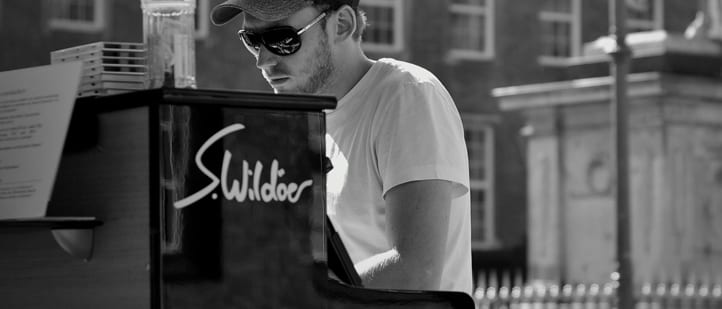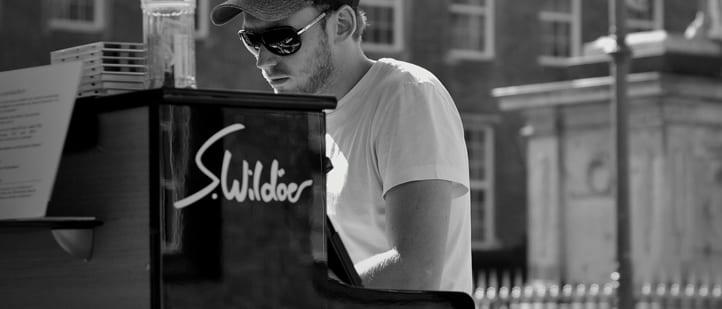 Bored of the same routine when you sit down at the keys? Try out these piano practice tips from New York, NY teacher Nadia B...
Bored of the same routine when you sit down at the keys? Try out these piano practice tips from New York, NY teacher Nadia B...
Practicing piano can be challenging and sometimes laborious as you aim to improve, learn, and break down hard passages. While learning piano does require time and effort, it should also be fun and engaging. The following piano practice tips will ensure that your practice time is both productive and fun.
1. Pick music you enjoy
One of the best ways to make piano practice fun is learning and playing music you enjoy. While this may seem obvious, I often find students playing certain pieces because they think they should, instead of finding the pieces that truly interest and inspire them. While some pieces can be fundamental to the repertoire or useful to work on a certain technical skill, playing music you like will allow you to improve more quickly and even perhaps enjoy playing pieces you previously found difficult upon returning to them with a higher skill level. If you’re not sure what kind of music would be most appealing to you, use that as motivation to listen to a variety of music, both recorded and live. As you learn what you like, you will also improve your ear and your knowledge of the repertoire in the meantime!
2. Play with a purpose
Another way to enliven your practice routine is to play with a purpose. Some of my students like to perform small, informal “recitals” for their family members at the conclusion of practice sessions to create a sense of pleasure in performing and sharing the music they are learning. Or perhaps your purpose might be to play as expressively as you can one day, as cleanly as you can the next day, and with as much awareness of your body as you can manage another day. Your purpose can change to match your goals and your mindset, so that you’re always engaged, learning, and having fun.
3. Learn more about your music
Do you know about the life and motivations of the composer who wrote the music you’re playing? If not, do some quick Internet research to learn some basic facts that may amuse, delight, and inspire you. Understanding what the life of the composer was like can breathe new life into your music-making and also make it uniquely expressive; you and the composer will have a distinctive musical bond that ties you closely together, even when centuries separate you. Delight in this ability to share such a personal musical experience with a historical or current figure. Another way to allow your practice time to be more connected is to play along with recordings. This is not only useful to improve your style and technique, it allows you to have a joint music-making experience, right in your home practice studio.
4. Notice things you’ve already learned
Perhaps the most dreaded piano practice element is practicing scales and technical studies. While technical studies are helpful, you can often get the same benefits by intelligently practicing technically demanding music you like. As you work on a piece you enjoy, notice what elements make up the piece. Perhaps some passages work on the same elements that you would find addressed in a technical study. While learning that particular piece, notice what elements of technique are fundamental and applicable to everything you play so that you can maximize both the fun and the learning as you practice music you enjoy.
With these piano practice tips, you should start to look forward to sitting down at the piano to play music you love with a clear purpose and a desire to improve, all the while sharing it with someone who would most definitely appreciate your efforts – the composer!
 Nadia B. teaches flute and piano in New York, NY, as well as through online lessons. She acted as principal flutist of the orchestra and wind ensemble at California State University, Sacramento, and then went on to receive her degree in Music Performance from New York University. Learn more about Nadia here!
Nadia B. teaches flute and piano in New York, NY, as well as through online lessons. She acted as principal flutist of the orchestra and wind ensemble at California State University, Sacramento, and then went on to receive her degree in Music Performance from New York University. Learn more about Nadia here!
Photo by Kerem Tapani
Suzy S.

